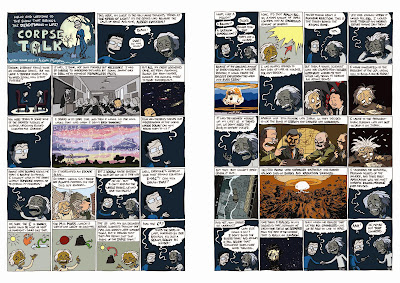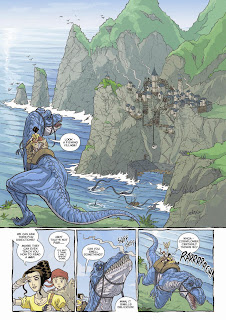Every single week when I was a child there was no other experience like holding in my own hand the latest and unread issue of my favourite comic. It was called Boys World, and that feeling of trembling excitement every Friday when it dropped through the letterbox was pure delight. For me and all my friends that feeling bordered on the euphoric. What brilliance! A profusion of stories, funny and serious, heroes and villains and adventures. And it was ALL mine to devour. Now that really is reading for pleasure!
The loss of these wonderful publications was and remains a tragedy for the country and its children. The real pity is that we didn’t realise the massive cultural platform they provided. They were, and are, one of the foundations of much of our modern day literary culture. I am a book editor and I would say at least half my story sense, if I have any … came from comics. That’s why so many top authors now pay tribute to them.

0778543698
info@jonathanring.co.uk
“It was as much through The Eagle and Classics Illustrated, those wonderfully evocative comic books of the Classics, that I first came to a love of stories. I loved the speed of the stories, the breathless excitement I felt as I turned the page. I am now a story maker myself, so I owe a lot to my ‘comic beginnings!’ What matters hugely is that children should be excited by stories, in whatever form, whether in books, CDs, comics, movies – it doesn’t matter. For many children comics are a way in, a way to become a reader. That’s what they were for me.”
Michael Morpurgo
“Comics formed a vital and vigorous part of my childhood reading. The Eagle was the main British comic, of course – to anyone born just after the war, as I was, it came as a great burst of life and fun and colour in a rather drab world.. I still feel the thrill that made me tremble with excitement when the weekly comic arrived with the papers. I’d seize it with avidity and retreat to some corner of the garden and fling myself down and devour it like a hyena. There was something so clean and powerful about the storytelling in a comic – so direct, so swift and easy, as if the delight and excitement of the story passed immediately into my blood.”
Philip Pullman
As the founder of The Phoenix I often talk about how reading comics is just as beneficial, if not more so, than any other kind of reading.
According to the research comics are just as sophisticated as other forms of reading, and they produce wonderful things; increased vocabulary, improved comprehension of social, linguistic and cultural conventions, firing of imaginations. Comics offer a particularly flexible, stimulating form of narrative, they allow you to read in a way that nothing else does – you can look back, retrace the visual clues, follow different details. It’s depictive art. They are as complex and as valuable as any kind of reading and excellent for promoting visual literacy too.

When we lost those comics of decades passed, we did not appreciate their almost unparalleled ability to nurture and grow new readers. What a brilliant catalyst comics are for growing readers, and writers, thinkers and creators. Unlike so many reading experiences that children encounter, comics are first and foremost about fun and entertainment. They are relaxed reading. Pure enjoyment. And it’s only through enjoyment that we get a real love of words and stories.

David Fickling is a children’s book editor and publisher. He started his career with Oxford University Press in 1977, moving on to Transworld and then on to become Publishing Director of Scholastic UK. Most recently, in January 2012, David founded and launched The Phoenix, the weekly story comic for children.
Above all, David loves great stories.
David Fickling lives with his wife in Oxford, England.


